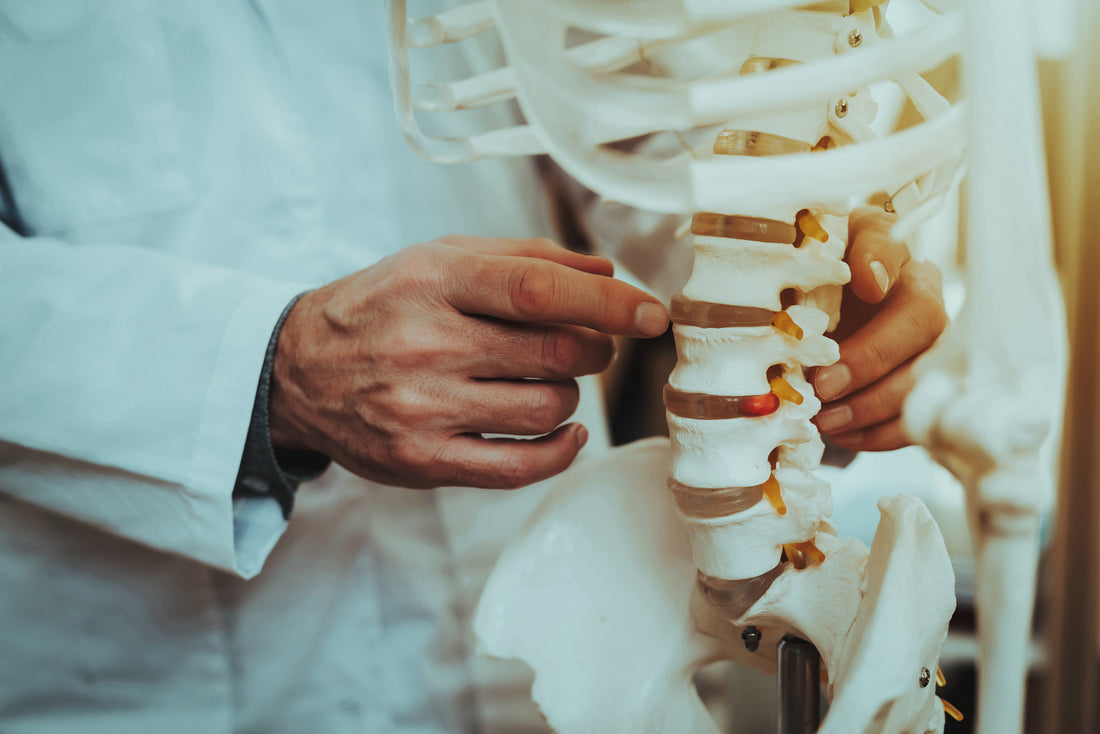Degenerative Disc Disease, or DDD, describes the symptoms stemming from a degenerated disc in the spine. Degenerative Disc Disease or Degenerative Disc Disorder is not actually a disease or a disorder. Rather, it is a condition that describes changes to the spinal discs located between the vertebrae of your spine. Due to the confusion about DDD, many patients are often left wondering what to do and how to treat their pain.
Our doctors have been helping patients with Degenerative Disc Disease for nearly 30 years. By utilizing our unique and effective methods of treatment, we have earned a trusted reputation in the Northern Indiana region for treating DDD and helping patients restore their quality of health.
Please contact us at (574) 293-7000 to schedule a consultation with our doctors. We can help you with degenerative disc disease!
What Is Degenerative Disc Disease?
Simply put, Degenerative Disc Disease is a breakdown of the discs that separate and cushion your vertebrae. This condition is due to the weakening of one of more discs in the vertebrae which usually act as a cushion between the vertebrae. DDD can occur as part of the natural aging process or due to an injury in the back. Some common injuries associated with DDD include falling, twisting, repetitive motions or an accident of some sort.
Common Symptoms of Degenerative Disc Disease
- Pain at the site of the damaged disc - for example the upper, middle, or lower back
- Pain radiating to arms or legs
- Increased pain when sitting, bending, lifting or twisting
- Decreased pain when you change positions frequently
- Decreased pain when you lie down
- Decreased pain when you walk or run verses standing or sitting
- Leg weakness or numbness
- Loss of bladder or bowel control
- Muscle spasms or intense muscle pain
It is important to remember there are other signs and symptoms of DDD and each person will not have the same symptoms.
How We Diagnose Degenerative Disc Disease
Degenerative Disc Disease can be diagnosed by carefully determining if you have a true disc-related problem. He will use a few different tests to determine which areas have restricted joint motion, disc injury, ligament injury and muscle spasms. It may be necessary to have an X-ray or MRI taken. X-rays can be done at the same time in our clinic. Once these tests and initial exams are done, we will provide you with your diagnosis and suggest a treatment plan for your DDD.
Common Causes of Degenerative Disc Disease
- Degeneration in the spinal joints due to age
- Thinning and degenerative discs that are bulging
- Degenerative discs that are putting pressure on spinal nerves
- Spinal stenosis that may be causing back pain and leg pain
- Trauma/Repetitive microtrauma, which can accelerate degeneration
- Spinal misalignments, which can accelerate degeneration
The 4 Stages of Degenerative Disc Disease
Stage 1: Dysfunction Stage
At the onset of degenerative disc disease, the affected disc or discs begin to cease functioning as they should. A common characteristic is that your spine is no longer adequately protected from shock and force of movement, as the discs lose their strength.
Stage 2: Dehydration Stage
Spinal discs will continue their loss of function and degradation during this stage, and the symptoms will likely grow more severe. The mild pain and discomfort you may have noticed in Stage 1 will begin to increase until back pain is a regular feature of your day-to-day life.
Stage 3: Stabilization Stage
The pain you experienced in Stage 2 is likely to become more severe during Stage 3. However, this pain may peak and then begin to subside as the spine stabilizes. You may also experience muscular aches and stiffness, and you will find that it becomes increasingly difficult to move.
Stage 4: Collapsing Stage
In the final stage, the spinal discs become dangerously thin and may become herniated, collapsed, and/or disintegrated. The severe pain felt during this stage often results from bone rubbing against bone or from herniated discs pushing into nerves.
Treatments for Degenerative Disc Disease
Schneider Clinic P.C. has helped patients with back pain and Degenerative Disc Disease for nearly 30 years. Our unique Activator Instrument gently and precisely realigns the vertebrae in the spine. There is no "cracking", "popping" or "twisting" with the Activator Technique, making it an ideal choice especially for those in severe pain or elderly patients.
Another popular treatment for Degenerative Disc Disease is our unique Disc Rehydration Therapy. It is a non-surgical treatment that utilizes specially designed tables to gently stretch and decompress the spine along with IV therapy to heal and hydrate the degenerated discs.
Read what a real patient has to say about our treatments:
"When I was seventy seven years old I began to have severe pain continuously in my back and knees. My medical doctor diagnosed me with Degenerative Arthritis. He did everything he could do, but to no avail. By this time I had to use a wheelchair, because I had no relief of my pain. Finally in desperation, he sent me to Elkhart General Hospital's Pain Center. They prescribed narcotics for my pain, which barely worked.
My grandson was a patient of Dr. Schneider's, and he brought my daughter a brochure about the Activator and it said there was help for Degenerative Arthritis in elderly people. With my condition the way it was, I was told not to go to a Chiropractor, but with this technique I could give it a try. I'm so thankful I did. Within one month my pain subsided. I could start using a walker and within two months I was taken off the narcotics. I am now on a maintenance program and walking with a cane. I'm so thankful God lead me to Dr. Schneider and the Schneider Clinic!"
~Inez

